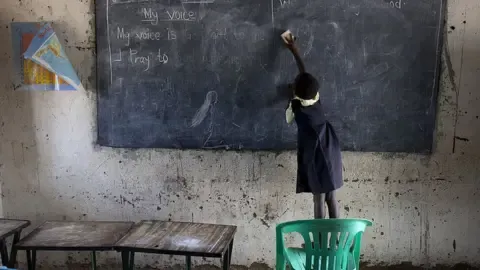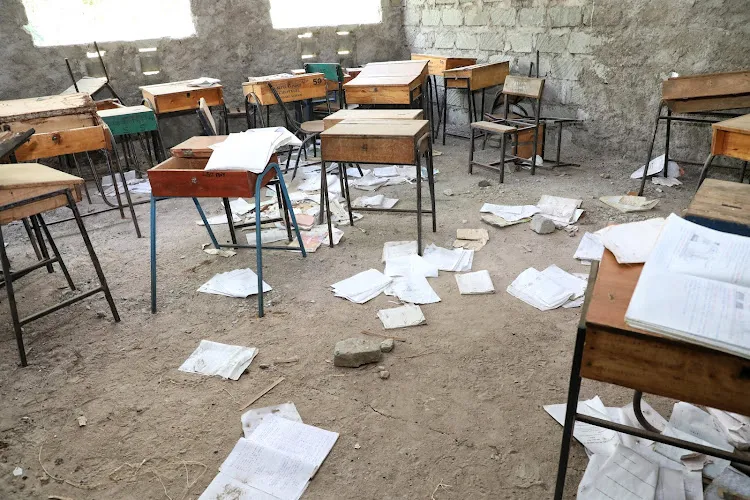South Sudan is bracing itself for an extreme heatwave, with temperatures expected to soar to a scorching 45C (113F). In preparation for this unseasonable weather, the country’s health and education ministries have issued a warning, advising parents to keep their children indoors. As a result, all schools will be closed from Monday, with the government warning that any facilities found operating during this period will have their registration withdrawn.
The decision to shut down schools has been welcomed by locals, who are concerned about the impact of the heatwave on students’ well-being. Peter Garang, a resident of Juba, the capital city, believes that schools should be wired to the electricity grid to enable the installation of air conditioners, which would help to mitigate the effects of the heat.
South Sudan, one of the world’s newest nations, is particularly vulnerable to the climate crisis. Heatwaves are common, but rarely do they exceed 40C (104F). The country is already beset by conflict, drought, and flooding, making living conditions extremely challenging. The situation is further complicated by the ongoing humanitarian crisis, which is fueled by violence, economic instability, climate change, and an influx of people fleeing the conflict in neighboring Sudan.

The World Food Programme has issued a report highlighting the dire humanitarian situation in South Sudan, stating that the country continues to face a dire humanitarian crisis due to these factors. In January, 818,000 vulnerable people received food and cash-based transfers. With the heatwave expected to last for two weeks, the government’s decision to close schools is seen as a necessary precaution to protect the health and well-being of students.
As the country awaits the onset of the heatwave, the ministries will continue to monitor the situation and inform the public accordingly. The closure of schools is a significant measure, demonstrating the government’s commitment to ensuring the safety and well-being of its citizens, particularly its most vulnerable members – its children.

